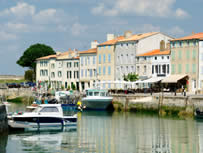Japanese course in Tokyo: blog entry #1
Coming to Japan, there were many things that I was worried about. As far as I could tell, I was the only American going to Japan through Cactus. Would I fit in? How am I going to communicate with my dorm mates? What will my classes be like? How will I survive three months without my parents or my dogs? Well, a week and a half has gone by and most of these fears have disappeared.
As it ends up, there’s another American in my dorm. Her name is Beverly. She’s really sweet and has helped me out a lot with conversational Japanese already. My other dorm mates are Chinese, but the dorm manager is Chinese and can speak English, so communication isn’t a problem. My room is nice; I have a shelving unit, a hanging unit and a balcony to hang my laundry. That’s something that I didn’t expect. Although driers are available, the Japanese don’t typically use them, so I had to go out and buy laundry clips.
They are very big on being environmentally friendly. Most people use public transportation. They also use cold water to wash their dishes – something that my mother thinks wouldn’t clean the dishes well enough. It’s really hard to throw trash away here because of all of their laws about it. But in my dorm, all of the trashcans are labeled, so it makes it easier.
Classes aren’t that hard either. We’re still in review, so who knows if it’ll pick up in the next week. Instead of switching classrooms and teachers like in America, we have the same teacher all day, but they change depending on the day of the week. We are in the same classroom every day with the same kids. My classmates are cool. They come from all over. The majority of my classmates are from China and France. The other countries represented are Colombia, Spain, Sweden, Australia and Belgium.
I miss my family and my dogs very much, but Beverly showed me this place called Nekorobi. The best way to describe it is a cat café. Literally it’s a room with twelve cats and you pay by the hour to sit, play with them, and eat or drink. It really helped with my pet/home sickness. I think it’s really cool that Japan has things like that and I look forward to discovering more interesting places in Tokyo.
Dana is studying Japanese in Tokyo with Cactus. Cactus offers language courses in over 30 languages, in 60 countries and 500 destinations worldwide.
We will be posting another blog entry by Dana mid-way through her course and at the end of her stay in Japan. For anyone thinking about taking a language course abroad, this offers a unique insight into life in a foreign country, including the fears and excitement that come with a long-term course. Thank you to Dana for contributing to our website!

